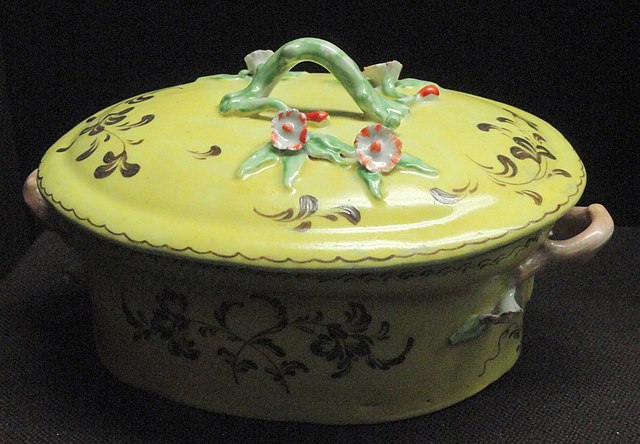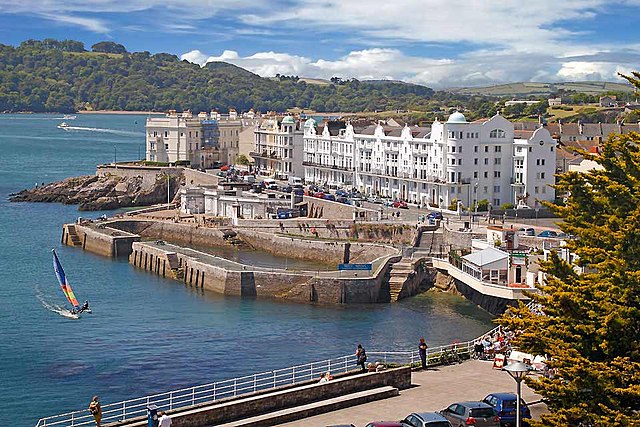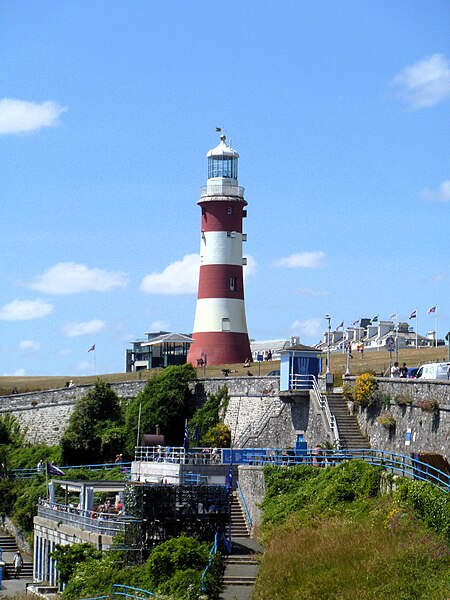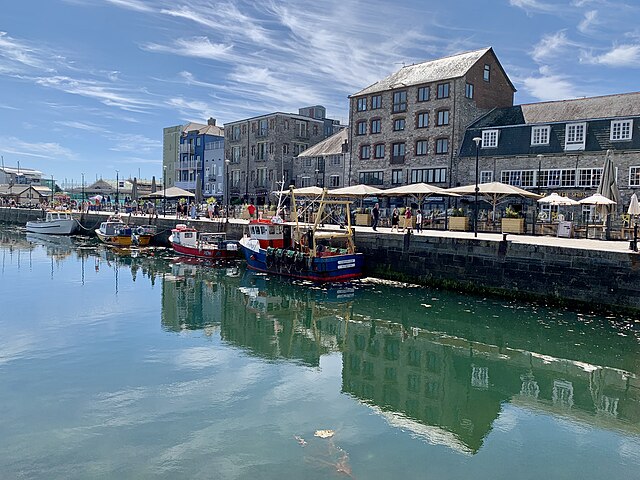Plymouth porcelain was the first English hard paste porcelain, made in the county of Devon from 1768 to 1770. After two years in Plymouth the factory moved to Bristol in 1770, where it operated until 1781, when it was sold and moved to Staffordshire as the nucleus of New Hall porcelain, which operated until 1835. The Plymouth factory was founded by William Cookworthy. The porcelain factories at Plymouth and Bristol were among the earliest English manufacturers of porcelain, and the first to produce the hard-paste porcelain produced in China and the German factories led by Meissen porcelain.
"Europe", about 1770, from a set. Height 32.7 cm, V&A Museum.
Covered butter pot, c. 1770, William Cookworthy & Co., Bristol (or possibly Plymouth), England, hard-paste porcelain, overglaze enamels
Armorial mug, Plymouth
Another view
Plymouth is a port city and unitary authority in Devon, South West England. It is located on Devon's south coast between the rivers Plym and Tamar, about 36 miles (58 km) southwest of Exeter and 193 miles (311 km) southwest of London. It is the most populous city south of London.
Image: Plymouthenglishcity
Image: Plymouth buildings 4 (geograph 7633033)
Image: Plymouth Barbican 2022
Image: New George St geograph.org.uk 5647136








